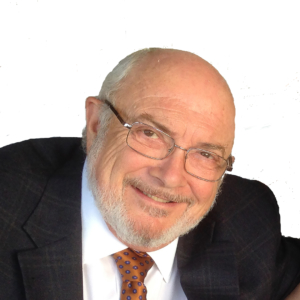Return to Work after a Workplace Injury – The Power of Words

In this week’s guest post, Return to Work after a Workplace Injury, Sonya Law highlights the power of words for our readers.
Exploring how the power of words can impact the recovery trajectory for an injured worker.
An employee who injures themselves at work feels immediately vulnerable and for the workplace it is a very serious incident, the priority should be the employee receiving immediate medical care. And for the workplace to contain the area where the incident has occurred where practicable to prevent any further injuries to other workers and subsequent investigation to take place.
If the injury is to the hands in particular, if we talk about manual workers as a group, their hands are used to perform all sorts of functions, when they are injured, it has a huge impact. Their whole career flashes before them, with questions, like, am I going to be able to do my job, am I going to be able to work again. The hands are an extension of our brain and injuries to the hands can have multiple impacts physical, psychological, cognitive, and emotional overwhelm and trauma from the incident.
So, when we think about employees who have injured themselves at work, it is important to use language that shows genuine care and compassion towards them as people.
Five important tips, think of the injured employee:
- Are injured until proven otherwise
- Needs a medical diagnosis
- Doesn’t want to be injured
- Needs assistance and support
- And time to be made comfortable physically and emotionally, before you commence questioning them or complete a safety investigation.
When people are returning to work, the words we choose to use can change the way they feel, they need to feel cared for as a human being first. Safe in the knowledge that they are supported and are a valued member of the team. The emphasis needs to be on empowering them to take control of their injury, by providing them with medical attention which will give them knowledge about their injury and prognosis. Which will help them to heal and recover and be back to work with their friends and colleagues as soon as they are medically able, we are talking post-injury management.
The words we use can change the recovery trajectory from being a smooth and positive experience to being negative and difficult. As a return-to-work coordinator or manager in charge of an employee’s return to work, it is important that you keep the lines of communication open. It is already difficult for the employee who has experienced the trauma not only of the workplace incident and resulting injury but also being cut off from their fellow workers and workplace.
It helps when we listen and ask open questions like, how do you feel? This signals to the employee care, that you are taking the time to check in on them and their recovery. Talking allows the employee to process what has happened to them and take ownership and responsibility for their recovery and healing which has positive impacts to the timeline for returning to work. Talking about the injury and experience allows them to open up and verbalise how they are coping and come up with strategies that assist them in their recovery. When an employee feels genuinely cared for, they are more willing to take responsibility for attending medical appointments and follow up on rehabilitation and physio exercises that aid their return to work. Physio is not an easy option, physio is difficult and sometimes painful, so acknowledge their effort and energy required to persevere.
A return-to-work coordinator who is disinterested and continually hard to get hold of sends a negative message to the employee that you are too busy to care. Layer upon that the use of negative language and closed questioning, can put the employee on the defense and have a negative impact on the trajectory of their recovery and return to work timeline. What could be a positive and progressive return to work experience then becomes a complex case.
An example of some open conversations could be: I am calling about your hand, how are you feeling? Are you feeling ready to come back to work? Sounds like it is healing up nicely and you are feeling more comfortable than last week? You are making great progress; what physio are you doing this week? Are you getting around okay with not being able to drive, are you sleeping and eating, okay? Do you have someone to care for you at home or family or neighbors who are helping you?
Let them know the positive improvements to safety in the workplace as a result of their input into the safety investigation: We are going to make the modifications you suggested and some improvements that came out of the workplace investigation, that are going to make a real difference to your colleagues and make your job easier and safer for you when you return to work.
The biggest risk to the injured workers is not only the lack of support from managers but negative interactions with work colleagues when they return to work. An example of this is a conversation, where their colleague says: We had to pick up the slack while you were away, because of you we were so busy and stressed. The injured worker feels on the outer and starts to feel socially isolated at a time when their resilience is already low. Their mental health starts to suffer they feel pain and it may impact their recovery, productivity, leading to absenteeism and an interrupted return to work plan.
If they are feeling a bit anxious or sensitive about returning to work, let them know that’s normal and that you are there to support them. Talk with their work colleagues and ask them to be patient and supportive in the days and weeks that they return to work. Encourage colleagues to use positive language, that it’s good to see them back, they were missed and to take care and if they feel any discomfort to speak up. So that they don’t feel alone, this support and comradery will help the injured worker to feel happier and good about being back at work and possibly prevent re-injury.
The injury is not only a physical one sometimes it can take the injured worker time to build up confidence again to do a task that they routinely did before without a problem, reassure them it takes time and its normal. Try to avoid putting tight deadlines on them, where there is time pressure to complete tasks until they feel more confident with the work.
Regularly ask them if they are experiencing any discomfort are they managing, okay? Being thoughtful and using positive language supports their recovery rather than using negative and inflammatory language, which will make a difference to their return-to-work experience. Questions like: How are you feeling, how comfortable are you, are you feeling more comfortable this week than last week, do you feel better?
The power of words can improve the recovery trajectory for the injured worker, by being supportive and using positive language the chance of recovery is better.
Look after your people, the way you talk with them will affect their recovery.
Did you enjoy this blog? Read more great blog posts here.
For our course lists, please click here.





